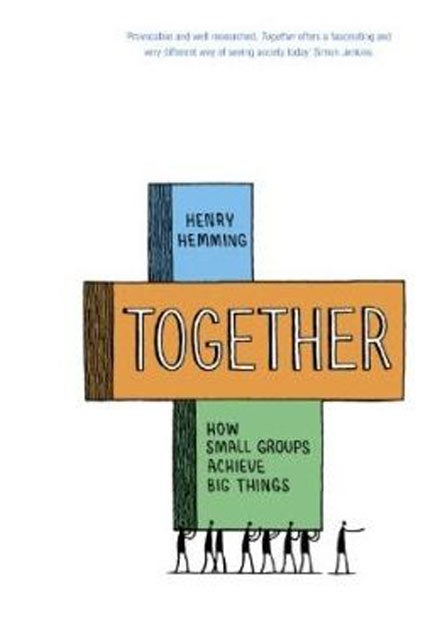Together: How small groups achieve big things, By Henry Hemming
In praise of the group mentality

Your support helps us to tell the story
From reproductive rights to climate change to Big Tech, The Independent is on the ground when the story is developing. Whether it's investigating the financials of Elon Musk's pro-Trump PAC or producing our latest documentary, 'The A Word', which shines a light on the American women fighting for reproductive rights, we know how important it is to parse out the facts from the messaging.
At such a critical moment in US history, we need reporters on the ground. Your donation allows us to keep sending journalists to speak to both sides of the story.
The Independent is trusted by Americans across the entire political spectrum. And unlike many other quality news outlets, we choose not to lock Americans out of our reporting and analysis with paywalls. We believe quality journalism should be available to everyone, paid for by those who can afford it.
Your support makes all the difference.The National Fancy Rat Society scampers into first place in three solid pages of acknowledgements in Henry Hemming's highly agreeable book, followed by the Pimlico Puffins, Knitting Hill, the 2nd Battalion of the 95th Rifles Re-enactment Group and D.A.M.E. (Dolls' House and Miniature Enthusiasts). Margaret Thatcher may have declared that there was no such thing as society, but even she would accept the existence of these small societies: the Essex Badger Protection Society, the Furness Family History Society, and other good folk who obey their hon sec's firm request to turn up and applaud a visiting speaker on a cold winter's evening.
The cheering thesis of Together is that these bands of brothers and sisters make up "a nationwide phenomenon involving millions of Britons". Some of them will have featured in Hemming's previous book, In Search of the English Eccentric, but you don't have to be dressed up as King Arthur or a baked bean to be part of "an unexpected surge of associational activity".
Having thought that the membership of voluntary organisations was fast dwindling, Hemming was pleased to discover that the last decade saw new members charging into community halls and rooms above pubs. Three years ago, a survey by the National Council for Voluntary Organisations came up with a figure of 900,000 separate groups. Britain, declares Hemming, has always been a world leader in get-togethers, ever since immigrant metalworkers forged a self-help group in Chichester after the Roman invasion in AD43. One of the earliest clubs to describe itself as such was Rota, a debating society situated above one of the many coffee houses in London in the late 17th century.
This mainly enjoyable book is amateur in both senses. Sometimes its conversational style does go on a bit; it takes three pages of waffling through olde worlde London to reach the coffee houses. But Together is also a labour of love by an author enthralled by the societies and their members. Even if a voluntary organisation does not have a charitable aim – loud motorcycle clubs spring to mind, and indeed ear – it is beneficial to its members, who enjoy the sense of belonging as they give their time and labour for free: 57 per cent of us, according to one survey. We are not a Broken Society because this is the Araldite that repairs it.
Join our commenting forum
Join thought-provoking conversations, follow other Independent readers and see their replies
Comments